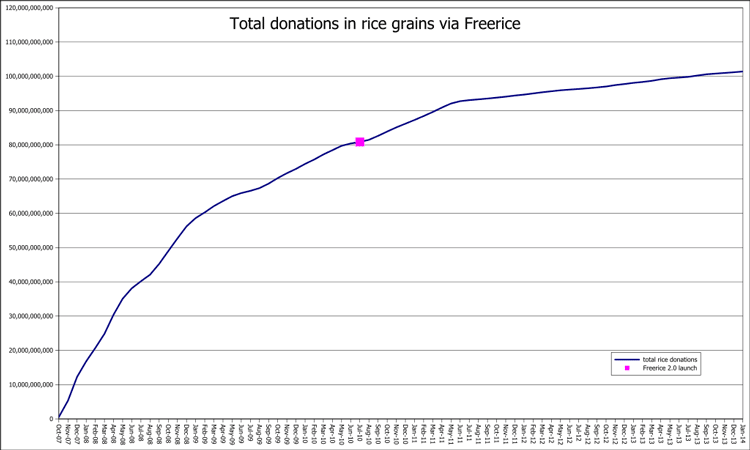I was too ugly to meet a beautiful woman. I didn’t have any money so I couldn’t start a business. And even if I started one, I didn’t have an office, or clients, and I was too shy to cold-call clients.
I didn’t have talent. I just got lucky. Nobody will hire me. I don’t have the right equipment.
I couldn’t write a book because I had no publisher. I couldn’t do stand-up because I was afraid people would heckle me. I’m afraid to write a blog post often because what would people think?
All of my excuses turned out to be blessings in disguise. @jaltucher (Click to Tweet!)
There’s ALWAYS a gap between “what I have now” and “what I would like.”
The gap is all of your excuses. All it takes to close the gap is to be creative and work your way through the excuses.
I repeat: this is ALL IT TAKES.
Here are some types of excuses that I’ve had in the past and still have.
You should make your own list. Please put whatever common excuses I miss in the comments.
It’s very exciting to see because excuses are pointers to where the target is. There are NO OTHER pointers other than your list of excuses.
The excuses are the map to success and fulfillment. It’s fun to take a blank piece of paper and draw out the map. Put roads, mountains, buildings, rivers, obstacles, destinations.
- MONEY
When I started my first business, called Reset, I had no money in the bank at all. And I had a very low salary at HBO. Oh, and I had a full time job.
It was brutal. I had to get very creative about finding computers to use and reaching out to friends and family to tell them what my skillset was and what sorts of clients would be great for me (Answer: anyone who needed ANYTHING, I would help for a fee).
So my solution was to make sure EVERYONE knew what my skills were and why they were needed.
Then I carved out time (weekends, nights, days when I could hide) to do the work for clients until I was ready to jump to full-time entrepreneur (by that point there were almost 10 employees).
- DON’T HAVE EQUIPMENT
I met a friend of mine yesterday. We spoke about people doing YouTube videos who are making a living from all the views and advertising they generate.
“I’d do it but I don’t have the right camera.”
I said to him, “You want to borrow my phone? Because any phone in the world has a camera 1000 times better than what you need for youtube.”
I asked him what else was getting in the way.
“There’s always a good reason and the REAL reason.” I told him. “You just gave me a bullshit good reason. What do you think the real reason is?”
And he thought about it and told me, “Laziness.” I get that. I’m lazy also.
“So take your phone camera. And practice executing. Pick an easy video to do. Go to the 42nd Street subway and videotape the guys playing underground there and upload it. Just get into the rhythm of making a video and uploading it. Then, write down ideas every day about more and more fun videos you can do. It’s a quantity game.”
Will he do it? I don’t know.
We love our excuses. They are just as much our babies as our ideas are.
- I DON’T HAVE TIME
Let’s say you are a single mother with three kids and a full-time job. You might not have time to write “Harry Potter.”
It’s really harsh. But you find the time. You stop TV. Or skip a meal (nobody in America will ever starve by skipping a meal. I will put my medical seal of approval on that statement. Because although I do not have a medical degree, I play a doctor on Facebook).
The magic of excuses is that there is always a way to be creative around them. The excuses are the map to your success. We all have obstacles.
You can view the obstacle as an opportunity to grow or as an obstacle to stop.
The good news is you get to choose.
- I’M NOT GOOD ENOUGH.
I was talking on my podcast to Jasmine Lobe , the NY Observer’s *** columnist. I was telling her about Kamal Ravikant ‘s approach when he was sick and how he rewired his brain by looking at the mirror and saying, “I Love Myself” over and over again.
He might not have believed it at first. But repeating it, as he put it so eloquently in the book, “rewired his brain.”
I told her I would do it but (and here is my excuse) I hate looking at myself in the mirror. She said, why don’t you look in the mirror and repeat, “I am handsome” until your brain is rewired.
I haven’t done it yet. But maybe one day I will. I’m always shy about how I look when I meet people. It’s often my excuse to not accept invitations to go on TV or even invitations to meet people.
Everyone in every field in the history of the world has at one point been “I’m not good enough.”
It’s how you overcome that excuse that not only makes you good enough, but matures you into the person who knows how to get good enough. So you can do it again and again.
- DON’T HAVE A DEGREE
I get emails every day. “I’d like to work at Google but I don’t have degree.” Or, “I’d like to be a success but I don’t have an MBA.”
And it’s not just degrees. I get emails from people who think they need yoga teacher certification. Or a medical degree (you can be a healer without writing prescriptions). Or any flimsy piece of paper that ultimately is no indicator of value.
Google’s HR person even just announced that GPA’s in school are a waste to look at. And that more and more of their hires have no college degrees at all!
The world is changing and you have to grasp it now.
It used to be that a stranger knew he could cooperate with you if you had that stupid piece of paper.
But now there are many ways you can show you can deliver value even without that paper.
Come up with ten ideas how you can escape the trap of the degree and demonstrate you still have value. Ideas for the company you want to work for, or the person you want to work with. Or just go get a camera and start making movies without a film degree.
When Andy Samberg was starting at Saturday Night Live he didn’t just huddle in the writer’s room with everyone else and try to come up with jokes. Too much competition!
He took a camera, with his buddies Jorm and Akiva, and went out and shot “Lazy Sunday,” which was the first Youtube video to get over 100,000,000 views and became his first SNL Digital Short.
He didn’t wait to rise through the ranks and hopefully get a joke or a sketch produced. He went out and produced it himself.
Before Macklemore’s “Thrift Shop” rap song got a billion views on YouTube he turned down every record label. He realized he didn’t need them. Didn’t need the validation they have provided for over sixty years to generations of artists.
The distribution is here to reach the world no matter what your field is.
You validate yourself now through your work.
- I’M NOT IN THE RIGHT LOCATION.
I moved from Pittsburgh to New York because I thought it would put me closer to the publishing industry. Some people move to Silicon Valley to get funding for their startup. I had one friend who felt she needed to live in Paris before she could paint.
I know MANY people who think they need to own a home before they could really have “roots” and start creating.
All of these are “good reasons” but not the “real reasons.”
The only thing that will get people to see your work is not where you live but if you actually DO THE WORK.
When I built Stockpickr.com I spent less than $5000 and probably never left my basement, 80 miles north of NYC.
I was afraid all the time. It was the tenth website I was trying to launch and the prior nine failed.
I had no idea if it would be good or bad. But it took off and in the second month had almost a million visitors and then kept growing until I sold it to thestreet.com just five months later.
It kept breaking down (I couldn’t afford good programmers), one employee working on it quit (I couldn’t pay him), and I realized too late that it had three or four decent competitors.
That’s ok. I also loved doing it and I wanted to create what would be the ideal site for someone like me interested in finance. So it worked. No matter that I was in a dark basement the entire time with no money and nobody to make me laugh.
- I DON’T HAVE THE RIGHT NETWORK
I am a bad cold-caller. With my first business I cold-called a bank and asked them if I could do their website. My only “in”: I said I had a checking account there. They laughed and told me to call them back in a few years.
A few years! I had payroll to make!
Lewis Howes described to me how he would make all of these LinkedIn connections and then invite them all out to open-bar parties where they could network.
He created his network by introducing EVERYONE ELSE to each other. He was simply that guy in the middle.
You want to be “that guy.”
You get a network by:
- Introducing people to others who can provide value for them. Make sure it’s “permission networking” (you get permission from both sides first. Else you are a burden and not a help).
- Introduce people to ideas without any expectation back. This means you have to get good at coming up with ideas.
- Find a connection in between you and the other person. A connection they might value. In Lewis’s case, he contacted many former athletes. Sometimes people use their hometowns or schools. Sometimes people use mutual friends, etc.
Building a network from scratch requires three to four hours a day of work. What if you have a job?
Well, build your network at work. The way to do this: ask to lunch the secretaries of people in different divisions. Come up with ideas for the heads of different divisions. Do one thing a day to help someone in your work group that you didn’t have to reach out to.
Networks build exponentially and not linearly. Once one person is in your network, ONE SINGLE PERSON, then everyone in their network is potentially in yours. Make use of that.
“I don’t have a network” is a beautiful beautiful excuse because it means that if you overcome this excuse you are going to meet many amazing friends who you will know and love throughout your career.
I know this because my “network” has changed 100% in the past five years, starting from total scratch.
Every day I bow down to how powerful this one excuse was to motivate me into making such great and wonderful new friends.
- IT’S TOO CRAZY
Rodney Dangerfield was an aluminum siding salesman. But he wanted to return to his old career as a standup comedian. I think he was about 50 years old. Maybe older.
It was crazy for him to think he could be a success. I don’t know what was going through his head.
But whatever it was: he did the smart thing. He opened up his own comedy club. Dangerfields. It became the most popular comedy club in NYC and many famous comedians got their start there (e.g. Jim Carrey.)
But who would deny him if he wanted to go on stage there? And it was there that he developed his craft more and more until he was basically the ugliest most obscene movie star ever.
AJ Jacobs wants to create the world’s largest family reunion. That’s crazy! Over 4000 people. But every day he takes tiny steps closer. (For one thing, we found out through DNA testing that we are cousins, as is his wife!). He also found a venue. A publisher is going to publish a book about it. He’s getting sponsors. Every day, new answers to the “That’s Crazy!” excuse.
Dr. Wayne W. Dyer had a tenure track position at a college. He was in his late 30s. He was set for life. Instead, he quit, loaded up the back of his car with a self-help book he wrote, and drove across the country leaving his books at every bookstore.
Everyone he knew thought he was crazy.
He sold over 100,000,000 copies of that book, Your Erroneous Zones.
Many things might be too crazy. But I’ve been in business now for twenty years. I have helped over 300 companies get financed. I’ve started and sold (and gone broke many many too many times) many companies.
I have seen the craziest things happen. People rise from unbelievably bleak and desperate ashes to be the one flower in a graveyard to blossom.
The sun is always there. But the flower has to be ready to blossom.
“It’s too Crazy” is a roadmap. Start with that phrase and circle it.
Then draw all the roads that lead out from that spot. They don’t all have to end up at the place you expect. Have fun with it. Find different roads and see where they lead.
Some will end up in Oz. But some will end up in even more magical places than you could have expected.
- I DON’T HAVE TALENT
Neither did Mick Jagger. He had a weird voice and couldn’t play an instrument. But he loved the blues and wanted to put his spin on it with the help of Keith Richards and others.
And he worked it. It turned out he had this weird sort of charisma that kept the fans coming back.
But he never would’ve found that out if he hadn’t played every night at the seedy underground clubs where he would bang out his horrible music.
That’s ok, he would’ve finished his degree at the London School of Economics and become a respectable accountant somewhere.
Instead, he’s MICK JAGGER.
It’s widely agreed that the best chessplayer ever, Bobby Fischer, didn’t have that much talent. He was above average but maybe not world class.
He had to figure out his own particular roadmap to success.
We each can draw our own unique-to-us roadmaps. How exciting it is to make an atlas to places you’ve never been and then try to travel across it.
Fischer did three things:
- He studied games from 100 years earlier and came up with improvements to each one.
So when people played him and found themselves in positions similar, he would know the special tricks to do and they wouldn’t.
- He learned Russian so he could read the Russian chess magazines to learn the latest openings that none of his US opponents knew.
- He played speed chess every day with his teacher, strong master Jack Collins.
Then he came out of nowhere (he had literally disappeared from the scene) and became the youngest US Champion ever. Then the strongest player ever.
- – -
I’m sure there are many excuses I’m missing. And many examples. Please, please put them in the comments (put your personal examples also) because I want my daughters to learn from this post.
REMEMBER to always tune your inner ear so you can listen for (and separate from each other) both the GOOD reason and the REAL reason when anyone (including yourself) gives you an excuse.
Most people don’t tune that inner ear. They believe the excuses because it’s easy. Because it gives them permission not to do something they love.
Fine. I understand that also. I give myself permission every day to miss out on some opportunities because I choose others.
That’s why on your roadmap of excuses, some excuses don’t have many roads coming out of them. They don’t need an extra traffic circle or bridge because their port is not in use much.
This article is for my children. I know they will have excuses as they climb each rung on the ladders of age, success, frustration, relationships, spirituality, health.
I want them to know that the best things that ever happened to me were my excuses.
Each excuse let me learn about myself, let me discover entire worlds of surprising possibilities, each one led me to more and more love (love of people, love of passions, love of hidden subtleties in every day happenings, and even love of excuses).
But I want my kids to not go through some of the pains that I have gone through.
It really sucks to be so sad you don’t know if you can last another day.
To not have anything to grasp onto because the worst excuse is, “it’s all just luck,” or “I’m just a fraud,” and to then think you have no luck and you never will again.
We choose our excuses. They don’t choose us. But love comes when we kiss our excuses and, magically, they kiss back and feed the next stage of our lives.
May you have many, many excuses in your life.
positivelypositive.com












































